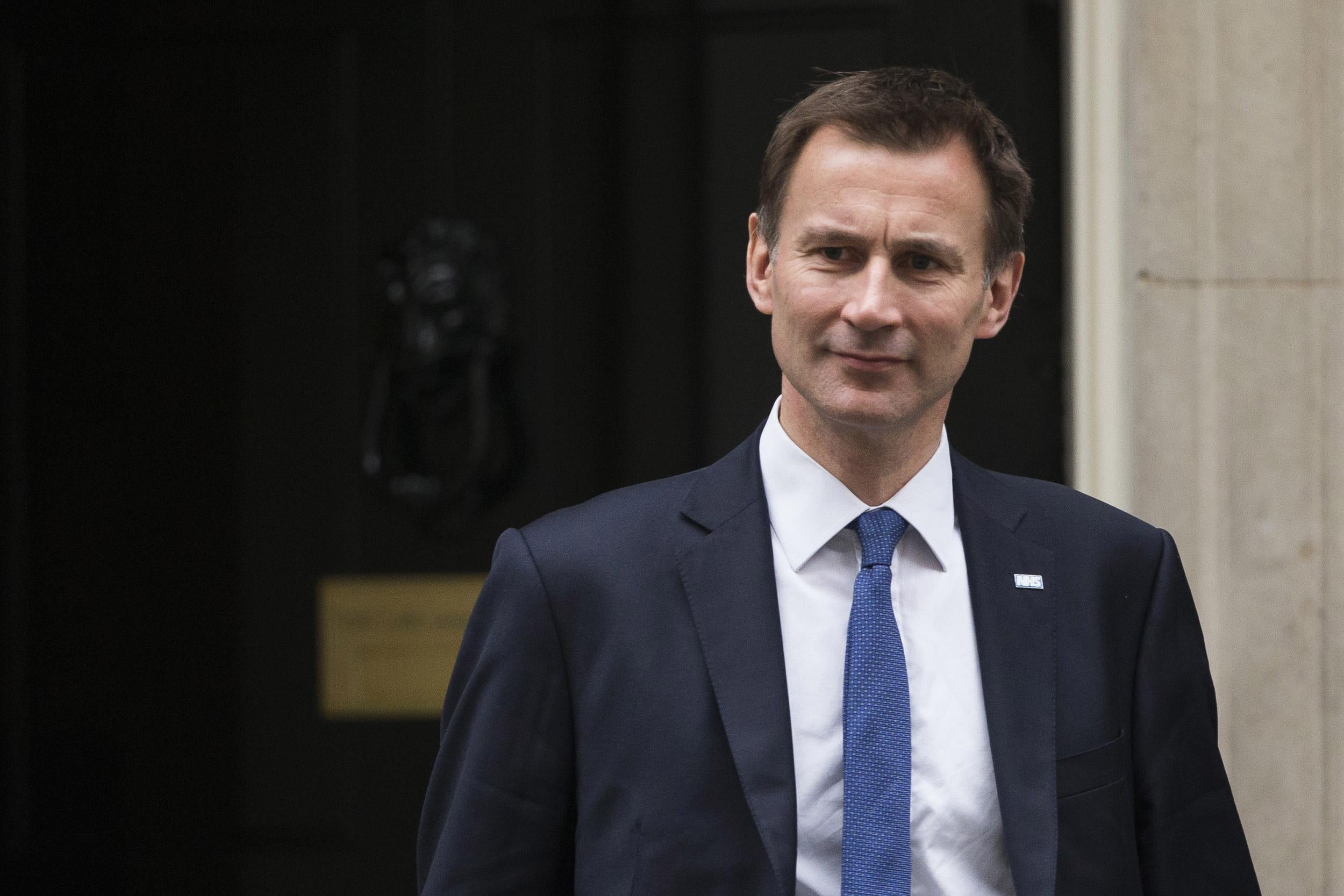4 reasons junior doctors have stopped trusting Jeremy Hunt
On one occasion the Health Secretary denied lying but admitted 'misleading Parliament inadvertently'

As Jeremy Hunt continues to pursue the Government’s election pledge of a “truly seven-day NHS”, junior doctors have walked out on strike for 24 hours.
Junior doctors have accused the Health Secretary of claiming to the public that the medical profession is getting a “pay-rise”. One “livid” junior doctor even accused Jeremy Hunt of lying, manipulating statistics, spinning against the medical profession and putting her patients’ safety at risk – during a live televised interview.
Over the last few weeks the People’s NHS, a community-run organisation to “stop NHS privatisation” that is supported by the Unite union, has been circulating a round-up of accusations about the Health Secretary’s conduct. “A nice summary of why we should probably stop trusting Jeremy Hunt,” they add.
Among them is the contentious issue over weekend care in hospitals and how, they claim, the Health Secretary has misinterpreted data for political point-scoring. Here we take a look at some of those claims.
Deaths in weekend hospital care
Mr Hunt has repeatedly asserted that understaffing at hospitals during the weekend is causing 11,000 excess deaths every year. The claim is a key plank of the Government’s argument for what they call a “seven-day NHS”. It is based on a research paper published in the British Medical Journal, which identified that 11,000 more deaths occur within 30 days of admission to hospital on Friday to Monday, than occur after admission Tuesday to Thursday.
While the paper did identify a lack of senior doctors and support services at the weekend as possible factors, it also points out that people coming to hospital at the weekend tend to be sicker. The authors, who include NHS England’s medical director Sir Bruce Keogh, were explicit that it was not possible to determine “the extent to which these excess deaths may be preventable” and said it would be “rash and misleading” to assume they were.
This led junior doctors to hold up an 8ft mocked-up copy of a textbook called "How to Read a Paper: the Basics of Evidence-Based Medicine" outside Whitehall. He was also castigated by the editor of Britain’s leading medical journal over “misrepresentation” of the facts on weekend mortality at NHS hospitals.
More care at the weekend statistics
It was not only the Health Secretary’s reading on deaths in weekend hospital care that led medical professionals and the public to question his mathematical abilities.
Mr Hunt claimed, shortly after the weekend mortality rates furore, that in only 10 per cent of hospitals patients are seen by a senior doctor within 14 hours at the weekend. Leading statisticians, however, described this as unfair, misleading and a gross underestimation.
Speaking to the Guardian at the time, the Department of Health said his 10 per cent figure related to the entire week, before adding: “The Health Secretary has rightly pointed out that only 10% of hospitals consistently provide the crucial consultant care patients deserve across the week."
Budget cut for Welsh broadcaster
During his time at the helm of the UK’s culture department Mr Hunt was accused by the Plaid Cymru MP Jonathan Edwards of misleading the public about a £2m cut in S4C’s budget. Mr Hunt's department, however, insisted the cut "was agreed by both".
But the accusation came after a freedom of information request released details of exchanges between Mr Hunt and the chairman of the Welsh-language broadcaster John Walter Jones. The documents show that Mr Jones wrote to the Culture Secretary stating that, on the basis of legal advice, the broadcaster could not legally agree to cut its budget by £2m.
However the BBC reported that information released in the FOI request also indicate that S4C's then chief executive, Iona Jones, was also negotiating with the Department for Culture, Media and Sport (DCMS) in the same period.
The notes appear to show that she did agree the £2m cut with a top official within DCMS, at around the same time that her chairman was refusing.
The Department of Culture said at the time: "DCMS announced in May that there would be a reduction in S4C's budget for the current year of £2m. This announcement was made following discussions between DCMS and S4C and the reduction was agreed by both parties."
News Corp bid for BSkyB
Mr Hunt survived a Labour motion in 2012 to refer him to the independent adviser on ministers’ interests over the News Corp bid for BskyB. The then Culture Secretary hit out at Labour MPs, who accused him of lying when he denied having intervened in Rupert Murdoch’s takeover bid, saying: “I did not lie to the Commons”.
The then Shadow Culture Secretary Harriet Harman told the Independent on Sunday: "Jeremy Hunt has misled the House. He said he was impartial when he wasn't, he said he had given the House all the information, when clearly he hadn't."
He did, however, go on to say there was a difference between lying and “misleading Parliament inadvertently” – which, he admitted too. "I would like to draw attention to the distinction between inadvertently misleading the House and lying," Mr Hunt said.
A major whipping operation by the Conservative party, which forced one MP to miss a funeral, ensured the embattled Culture Secretary survived the furore.
Join our commenting forum
Join thought-provoking conversations, follow other Independent readers and see their replies
Comments
Bookmark popover
Removed from bookmarks